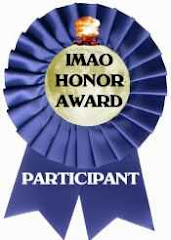A clip from documentary "Aaron Copland: A Self-Portrait"(1985)
Aaron Copland, composer (1900-1990)
His film scores ('The Heiress', 'Of Mice and Men') & 'Lincoln Portrait' (Leonard Bernstein, cond.)
Commentary by composers Jacob Druckman, Lukas Foss, David Diamond & William Schuman
Directed by Allan Miller
Films for the Humanities & Sciences
Narrator; Copland's interest in reaching the American public also extended to the movies.
Copland: "The Heiress", I'm happy to say, won my an Academy Award for the score.
Copland: There was a scene where she was supposed to be taken very seriously by the audience and to the dismay of the producer and director of the film [ William Wyler ], when they tried it out, as they always do in some little theater outside Hollywood, the audience laughed at her when she was stood up. And the producer came to me and said, 'Copland, you've got to do something to save this scene. If the laugh at her at that moment, we're finished!' So I completely threw out the music I had written for the scene and wrote a much more dissonant sounding music than would be normal in a music house. [I saw a documentary that illustrated this precise fact, showing how using alternative music to "The Heiress" evinces different emotions, but I don't remember the name of said documentary] By golly, when they got to that scene, there wasn't a sound in the house. Same scene, and, of course, I'm sure the audience didn't know music was being played, they were so involved. But there was something about the tenseness of the music that didn't suggest anything funny. And it worked!
Narrator: Copland helped launch the careers of several generations of composers. Many of today's major figures came under his influence.
Narrator: Compose/conductor Lukas Foss
Foss: Aaron was in his advice to a young composer always very functional. He never made prophecies, big statements. He would say, 'What about this note? What about this instrument? I don't think that that combination of instruments is right for what you're saying in that bar.'
Leonard Bernstein: When I would come with my new piece, or half of a new piece, or an idea for a new piece, and he'd say, 'Throw away it's warmed over [Alexander] Scriabin
Copland: [laughs]
Bernstein: Just start all over again! Forget it!
Bernstein: Or, he'd say, 'That's good! That bar - those two bars are good. Throw everything else away and do something about that.'
David Diamond: When he would look at my music, play it through, or when I would play it through with him. He'd say, 'Now, David Diamond, I want you to be more [ soucieux ?]. You've got to be more self critical. You write too much.'
William Schuman: He didn't want to turn you into another little Aaron Copland. He wanted to try and help you achieve whatever it was he thought you were about. And that was extraordinary.
Narrator: Now the central figure in America's music, Copland made his patriotic contribution his own way with "Lincoln Portrait." It's narration was drawn from the own words of Abraham Lincoln. And literally hundreds of distinguished Americans have narrated "Lincoln Portrait" since its premiere in 1942.
Copland [reciting "Lincoln Portrait"] Abe Lincoln was a quiet and a melancholy man. But when he spoke of democracy, this is what he said. He said [from August 1, 1858: On Slavery] , 'As I would not be a slave, so I would not be a master. This expresses my idea of democracy. Whatever differs from this, to the extent of the difference, is not democracy.'
Narrator: Despite this overt patriotism, [Copland] was accused of disloyalty by Senator Joseph's McCarthy's House on UnAmerican Activities Committee.
[As a youtuber noted, this makes no sense. McCarthy was a senator and didn't served on HUAC]
Foss: To cast doubt on the Americanism of the composer of "Lincoln Portrait" is really extremely foolish. But you couldn't laugh about that. Nobody could.
Copland: I just felt like kind of a pawn in his machinations, I'd call them. How he happened to arrive at me I don't have any idea. But uhm it wasn't a very pleasant thing to go through. However, one goes through it and lives on. So that was that.
Copland [continuing reciting "Lincoln Portrait"] [from the "Gettysburg Address"] And that this nation, under God, shall have a new birth of freedom—and that government of the people, by the people, for the people, shall not perish from the earth."



















No comments :
Post a Comment